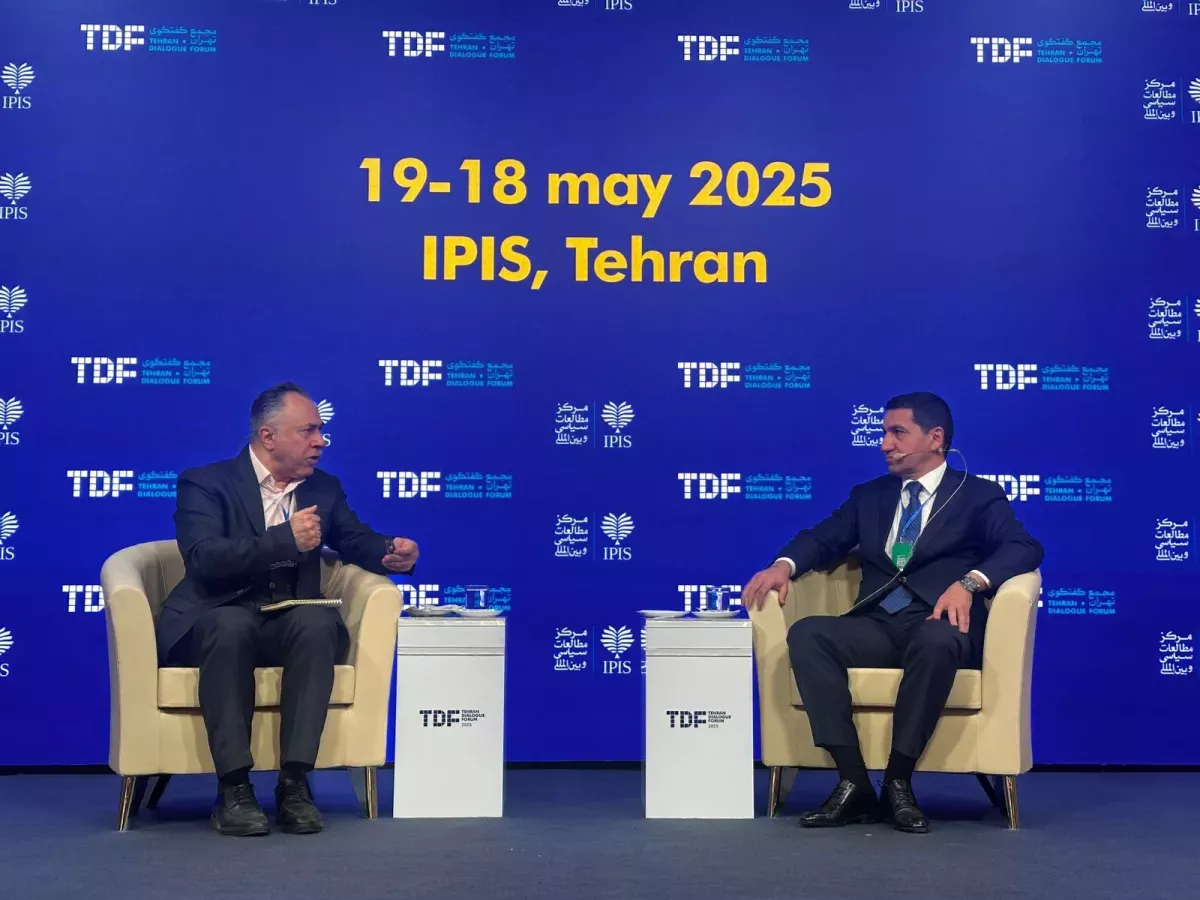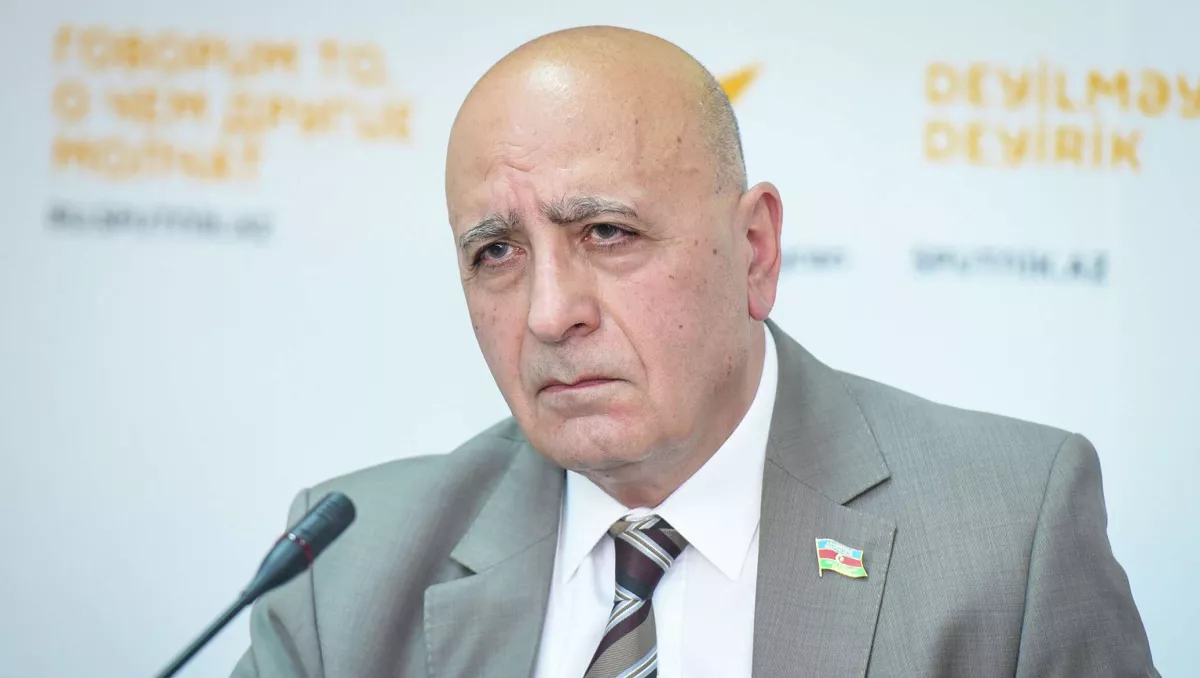Azerbaijan and Iran in search of balance Expert opinions on Caliber.Az
Assistant to the President of Azerbaijan and Head of the Foreign Policy Affairs Department of the Presidential Administration, Hikmet Hajiyev, took part in the “Dialogue Forum” held in Tehran. The statements he made both during the event and afterward in the media inspire optimism regarding Azerbaijani-Iranian relations.
In particular, Hajiyev emphasised that following the visit of the President of Iran to Azerbaijan, relations between the two countries have reached a new level and continue to develop. He noted that the discussions placed special emphasis on the formation of a new global order, regional cooperation and inclusivity, as well as the further strengthening of Azerbaijani-Iranian cooperation, with a focus on elevating it to a qualitatively new level—especially in the field of economics.
Hikmet Hajiyev also underlined that the region is witnessing divisive tendencies instigated by external forces, and that Azerbaijan places particular importance on strengthening ties in order to harness real opportunities for the benefit of its partners.
"We need to build railway infrastructure and work together. We must identify projects that can be implemented," he said.

The presidential aide especially noted that favourable conditions for peace have now emerged in the South Caucasus region: "We can say with satisfaction that, since the independence of Azerbaijan and Armenia, ideal conditions for peace have now been created in the region—peace and stability are already prevailing de facto," he stated.
An Azerbaijani MP and an Israeli Iran expert shared their views with Caliber.Az on this new stage of relations between Baku and Tehran, as well as its potential impact on the nature of the Azerbaijan-Armenia dialogue.

As Rasim Musabayov, Member of the Milli Majlis (Parliament) of Azerbaijan and political analyst, noted, Iran is a major neighbour with whom Azerbaijan shares a thousand-year history.
"We have common religious, cultural, and ethnic roots. That is why normal, neighbourly, and mutually beneficial relations are important not only for Azerbaijan but also for Iran. Regardless of the political agenda, the Islamic Republic has an interest in fostering these ties. In this context, Hikmet Hajiyev’s visits to Tehran are of particular significance, as they form part of efforts to develop political dialogue between our two countries."
He added that concrete practical matters—especially in the fields of economy and transport—are being actively handled by Deputy Prime Minister Shahin Mustafayev, who heads the Azerbaijan-Iran intergovernmental commission on the Azerbaijani side. "These issues are regularly discussed, and specific agreements have already been reached on many of them," the political analyst said.
According to him, Azerbaijan consistently advocates for stable and respectful relations with neighbouring Iran.
"At the same time, we have made it clear: any attempts to impose an external line of conduct on Azerbaijan—whether from Washington, Moscow, Brussels, or Tehran—are unacceptable to us. We firmly uphold our independence and sovereignty, and our response to such attempts will be equally resolute, regardless of their source."
However, if relations are built on mutual respect and mutual benefit, we are fully supportive. In my view, the current visits and meetings are aimed precisely at this. We hope that as a result of these contacts, the implementation of relevant projects—primarily infrastructure and transport-related—will receive additional momentum.
As for the Armenian-Iranian aspect, we proceed from the understanding that the Armenian factor is excluded from the bilateral agenda between Baku and Tehran. Iran has the right to develop its own relations with Armenia—that is its sovereign choice. However, in the context of resolving Armenian-Azerbaijani issues, Iran, like other external actors—including Europe and Russia—does not play any role. All such matters are resolved solely in a bilateral format—between Azerbaijan and Armenia," said Musabayov.

In turn, Israeli analyst, expert for Iran, and journalist Michael Borodkin noted that a thaw is clearly underway — in recent times, the Iranian authorities have significantly softened their rhetoric towards Azerbaijan. Whereas previously, Iranian media harshly criticised Azerbaijan’s foreign policy — particularly its friendly relations with Israel and Türkiye — and accused Baku of bringing “Zionists, NATO, and Pan-Turkists” into the South Caucasus while threatening various forms of retribution, the tone has now shifted.
"Iranian media outlets, as well as experts who until recently had adopted an extremely uncompromising stance towards Azerbaijan, have suddenly started speaking of the need for good neighbourly relations, the importance of cooperation, shared interests, and so on. The website AIA Global News clearly illustrated this change in tone in April and May 2025. Instead of aggressive statements, there have been calls for a softer, more consistent approach towards Azerbaijan. The main message of this new rhetoric is that, in order to influence the Azerbaijan-Israel alliance and the dynamics of cooperation between the two countries, one must not threaten, but rather engage with Baku, seek common ground, and actively strengthen ties across all sectors — especially in energy and trade," Borodkin noted.
In his view, it is still too early to speak of any real change in Iran’s policy, and the softening of tone is better understood as a tactical manoeuvre.
"Power in Iran has remained in the hands of Supreme Leader Khamenei for more than 35 years now, so one should not expect any substantial improvement. President Masoud Pezeshkian may genuinely wish to improve relations with neighbouring countries—starting with Azerbaijan—but he is not the one who determines Iran’s foreign policy. Without fundamental changes to the Iranian regime, its foreign policy will remain the same—imperial and expansionist—though tactical shifts in one direction or another are possible.
This is particularly evident when it comes to Iran’s stance on Israel. Since the 1979 revolution, the Iranian regime has—without any real justification and purely for ideological reasons—designated Israel as its enemy and declared a war of annihilation. Neither Azerbaijan nor anyone else will be able to convince Iran’s current leadership to change this position. Such a shift can only come from within and only with a change of regime or, at the very least, a profound ideological reform—which, as of now, we are not seeing. Should that ever happen, Azerbaijan could certainly serve as an excellent mediator in restoring relations," Borodkin said.








